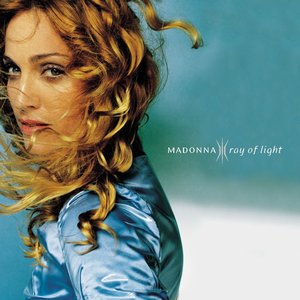Published on Feb 20, 2006
There comes a point of realization in certain
people’s lives, when the being is simplified to a whit, and the
visceral things that seemed to matter so much cease to do so; least
of all the pleasures and vices that make living so attractive. This
moment of clarity came into the life of Madonna, a heroine of the
pop culture, when she gave birth to her daughter Lourdes in 1996. A
couple of years later, she released Ray Of Light, an album
of sincere confessions of her realization and of her new discovery
of life through the eyes of a mother, and not a pop-icon.
Ray Of Light is Madonna’s most down-to-earth
effort to date. This pop-diva’s newfound humbleness, mixed with the
gratitude and love for her daughter, sets a flagrantly redemptive
tone to this album.
On the opening track “Drowned World/Substitute For
Love,” as an ode to the birth of her daughter and her own rebirth,
she sings “I traded fame for love / Without a second thought / It
all became a silly game / Some things cannot be bought” in the
softest and most genuine tone. On “Swim,” the following cut, this
queen of pop sings, “I can’t carry these sins on my back / Don’t
wanna carry anymore / I’m gonna carry this train off the track /
I’m gonna swim to the ocean floor,” as she seeks an escape from her
life of glamour that she has been so far leading.
Possibly the most obvious proof Madonna’s new outlook
into life is the spiritual “Shanti/Ashtangi,” which is sung in the
ancient Indian language of Sanskrit. Madonna’s attraction for the
unworldly shows in the traditional Indian devotional lyrics of this
song, which even though composed in a foreign language, is sung
effortlessly, and in fact quite beautifully.
It seems that everything fell in the right place with
Madonna on Ray Of Light. This is especially true with the
choice of William Orbit at the production helm. Set in 90’s Euro
dance-music style, the album is decked up in classy ambiences,
cutting edge beats, and sparse kisses of guitar chords — like the
intro on the title track that is as good a kicker as a perfect cup
of morning coffee — just to give the extra added magic touch.
Unlike Bedtime Stories (Ray Of Light‘s
predecessor), which had different sounds (thanks to the presence of
a fleet of producers, coming from diverse musical backgrounds),
Ray Of Light is consistent in its mood; it is Madonna’s
concept-album of absolution, through and through. Orbit’s masterful
production turns this album of effusive expression of motherly
affection and of sappy confessions of enlightenment into an
inspiring work of pure musical genius.
Madonna’s albums have always been scandalous; driven
by naughtiness, angst, and mischievousness. It is ironic that in
her catalog of great albums the best one had to be the one that’s
uncharacteristically non-indulgent, moral, and pious. Redemption is
a strange, strange thing.
